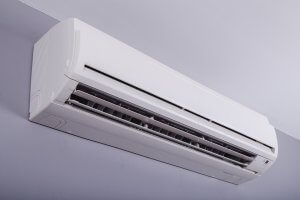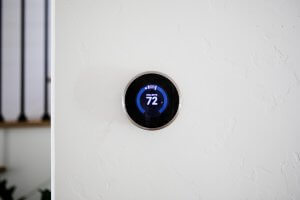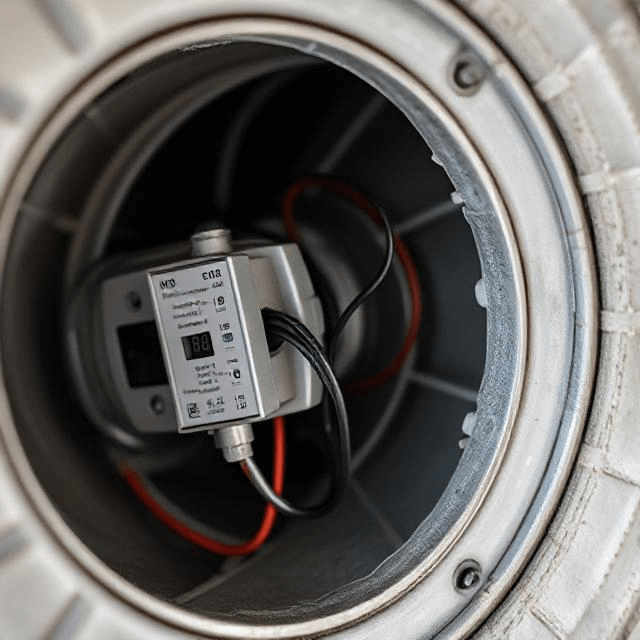High energy bills and inconsistent room temperatures can frustrate many homeowners. These issues often result from outdated or inefficient heating systems that struggle to distribute warmth evenly throughout the home.
One effective solution to these problems is transitioning to a radiant heating system.
In this guide, our experts at Season Control HVAC discuss more about the radiant heating system and how to harness its full potential.
What Is a Radiant Heating System?
A radiant heating system generates warmth directly from the floor, walls, or ceiling rather than through the air. This process distributes warmth evenly across a room from the ground up to create a comfortable environment without the need for forced air.
Radiant heating can be powered by:
- Electricity: Heating cables are installed beneath the surface.
- Hot Water: Also called Hydronic Heating, this method circulates water through pipes laid under the floor or within wall panels.
This method of heating is far more efficient than traditional forced-air systems, as it minimizes heat loss and distributes heat more uniformly. Radiant heating also enhances comfort by eliminating the circulation of allergens and dust.
How to Maximize the Efficiency of a Radiant Heating System?
With efficiency, a radiant heating system offers a more comfortable environment, energy savings, and a reduced carbon footprint.
Here are several tips to help you get the most out of your radiant heating system and make your home energy-efficient:
Upgrade Your Insulation
Improving the insulation in your home is critical to preventing heat loss.
Proper insulation creates a barrier and ensures that the warmth generated by your radiant heating system stays indoors. This helps maintain a comfortable temperature in your home, even in the coldest months.
When checking the insulation, make sure to pay special attention to areas prone to heat loss, such as attics, basements, and exterior walls.
Install a Smart Thermostat
A smart thermostat goes beyond simple temperature adjustments.
It learns your habits and adjusts the heating schedule accordingly. The advanced control also offers features like remote control via smartphones and integration with other smart home devices.
This reduces energy consumption by heating your home only when needed, based on your daily routines and preferences.
Opt for High Thermal Mass Flooring
Choosing the right flooring materials can greatly enhance the effectiveness of your radiant heating system.
Materials with high thermal mass absorb and store heat. It also helps distribute the heat evenly across your home for a stable indoor temperature. This reduces the load on the heating system and decreases energy consumption.
Regular Maintenance
Routine maintenance is essential to keep your radiant heating system running efficiently.
For hydronic systems, this means checking the pipes for leaks or blockages that could impede the flow of hot water. For electric systems, inspect the coils and wires for any damage.
Regularly servicing your boiler or water heater can prevent breakdowns and ensure your system operates at peak efficiency throughout the heating season.
Use Rugs and Carpets Strategically
Rugs and carpets can play a strategic role in a home with radiant heating.
While it’s true that uncovered high-thermal-mass floors conduct heat more efficiently, strategically placed rugs can add a layer of insulation. They keep feet warm and retain heat in commonly used areas.
Just ensure that these floor coverings do not cover too much of the heated surface, as this can hinder the system’s efficiency.
Zone Your Heating
Zoning your radiant heating system allows for tailored temperature control throughout your home.
This means you can keep living areas warm while reducing heat in unoccupied rooms. This leads to more efficient energy use and customized comfort.
Zoning can be especially beneficial in larger homes where heating needs vary significantly from one area to another.
Consider Solar Integration
Integrating solar panels with your radiant heating system can provide excellent energy efficiency and environmental impact.
Solar energy can power electric radiant systems or heat water for hydronic systems, drastically reducing your reliance on fossil fuels and lowering energy bills.
Although the initial investment may be higher, the long-term savings and environmental benefits make solar integration an appealing option for many homeowners.
Educate Household Members
The efficiency of your radiant heating system can be affected by how it’s used daily.
Educating household members about simple practices, such as not blocking heated floors with furniture or heavy rugs and adjusting thermostats according to need, can substantially impact system efficiency.
Encourage everyone in the home to be mindful of these practices so your radiant heating system operates effectively. And, of course, continue to maximize comfort and energy savings.
Final Thoughts on Maximizing Home Heating
Adopting a radiant heating system significantly elevates your home’s comfort and energy efficiency.
Ultimately, the journey to an efficient, sustainable home heating solution is ongoing, emphasizing thoughtful choices and practices. Embrace these strategies to ensure your radiant heating system operates at its best, making your home a model of efficiency and comfort.
For guidance on enhancing your home’s heating efficiency, contact the specialists at Season Control HVAC today. Our team is here to help you make informed decisions for a more comfortable and energy-efficient home.









